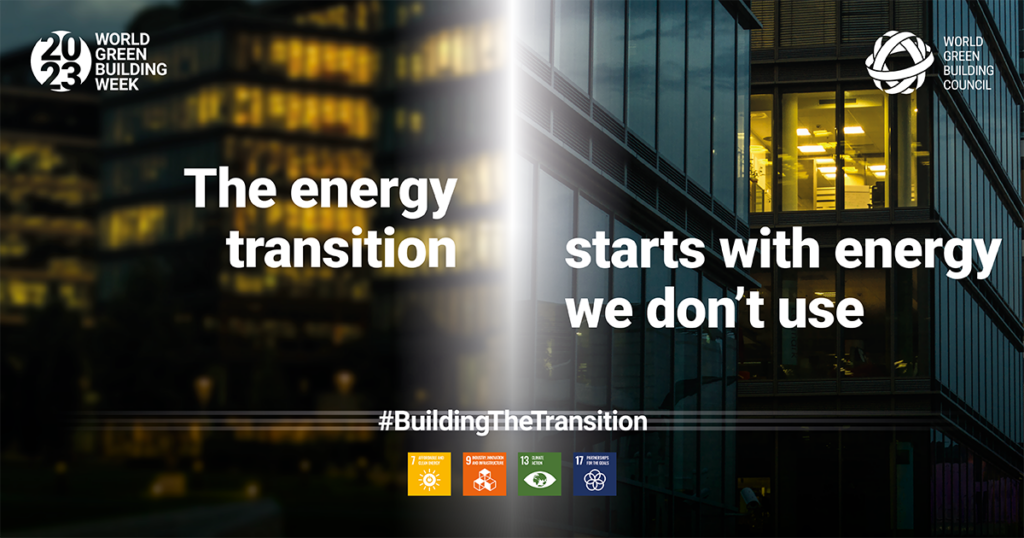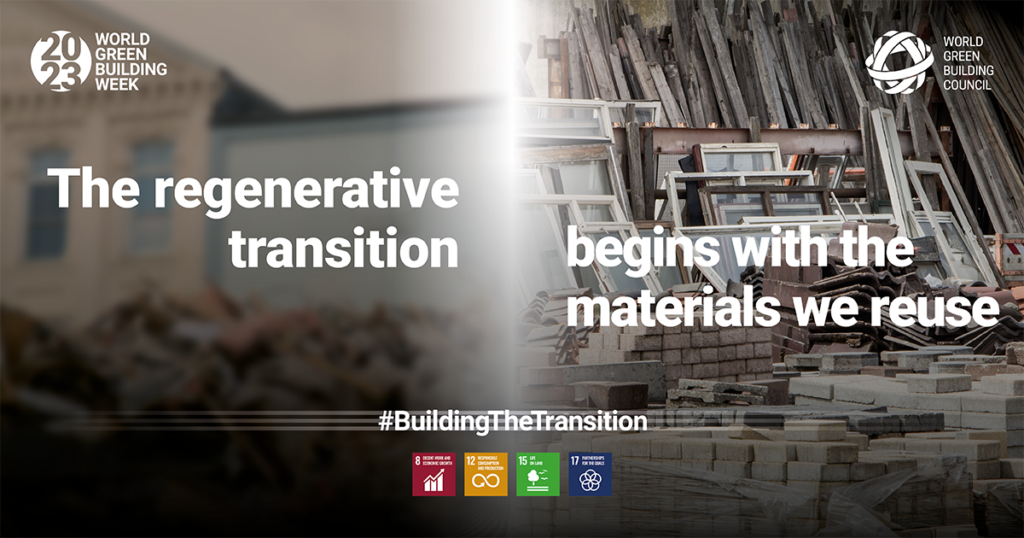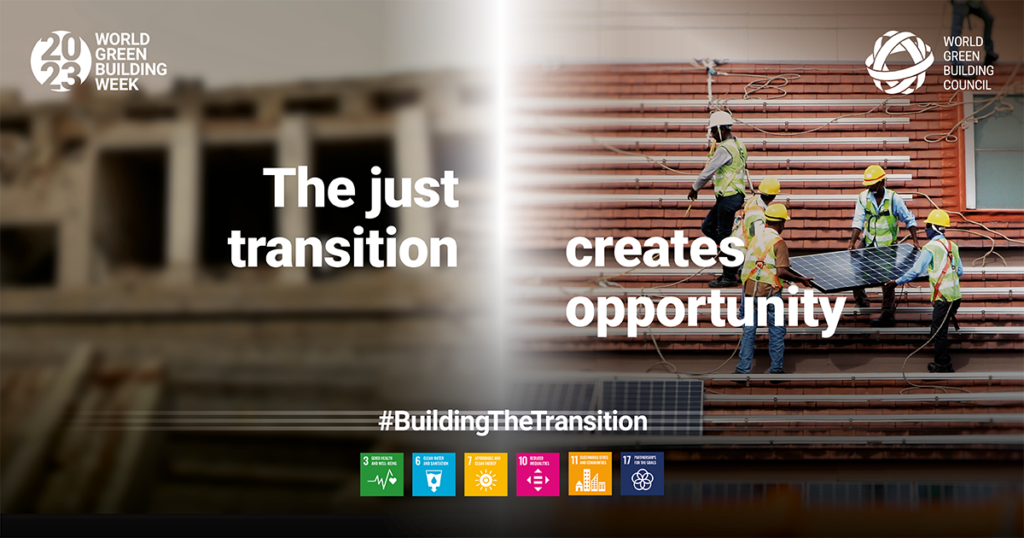
From 11–15 September 2023, we’re calling on the global building and construction sector to accelerate the transition to secure an energy efficient, regenerative and just future for all.
Led by a network of over 75 national Green Building Councils (GBCs) and their 46,000 members, the week-long campaign will show how through systems change thinking, and leveraging local solutions, we can transition to sustainable built environments.
Throughout the week, WorldGBC’s network will host events across the world and share examples of #BuildingTheTransition across three areas: the energy transition, regenerative transition and just transition.
This year’s campaign will also lead into the UN’s 2023 SDG Summit (18–19 September) and therefore pinpoint 11 of the 17 Sustainable Development Goals that are essential to catalyse a sustainable built environment.
Find out how you can support this year’s WGBW23 activates through our ‘How to Guide’.
See what local WGBW23 events are happening near you through out interactive map.
In 2023, against the backdrop of the world’s first Global Stocktake, global attention is shifting to the solutions that must be scaled to tackle the tipping point in climate change, humanitarian challenges and economic uncertainties.
There is no question that the world must undergo a transition to ensure our survival on this planet. The transition required to regenerate and repair our planet will see systemic transformation across all sectors.
As the largest contributing sector to energy-related carbon emissions (37% globally), the built environment must be a key agent of change in the transition to a decarbonised, sustainable and resilient society.
In the run up to COP28 in Dubai, UAE, and as the UNFCCC works to bring transitions forward on the climate agenda, the green building network has an opportunity to spotlight how built environments are a key part of the transition to a sustainable future.
The energy transition is about more than switching to renewable energy. We’re talking about a complete systemic change – accelerating the uptake of built environments that are all-electric, reducing energy demand, storing and sharing clean energy, and producing more energy than they use. It’s investing in clean technologies and driving economies of scale. And it’s deep retrofitting existing buildings to be exceptionally energy efficient.

How do we advance regenerative principles in the built environment from niche to normal? Our planet’s resources give us life, but they are not infinite. Humans and the built environment must exist together within a cycle of natural systems. That means not just protecting biodiversity but prioritising its restoration, embracing nature-based solutions, and creating a thriving circular economy across the entire building value chain.

We cannot achieve climate justice without social justice. The people who have contributed the least to environmental degradation are suffering the biggest consequences. Equality is not the same as equity. Advancing a just transition in the built environment means a committed solidarity to protect human rights – from financial flows, to supply chains, to geopolitics – and provide opportunities for skills to thrive.

Join us at World Green Building Week from 11–15 September 2023, contact your national Green Building Council to find out about local events and more, and join the social media campaign through @WorldGBC, #BuildingTheTransition and #WGBW23.
If you are hosting an event during #WGBW23, please share your event details here and we’ll upload it to our interactive map.
Contact us at office@worldgbc.org to find out more.